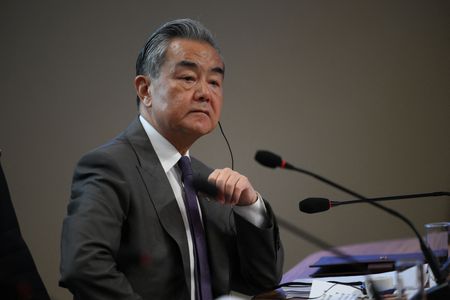By Fayaz Bukhari and Shivam Patel
SRINAGAR/NEW DELHI (Reuters) -Over half of the tourist destinations in India’s insurgency-torn Kashmir region were closed to the public from Tuesday, according to a government order reviewed by Reuters, in a move to tighten security after last week’s attack on holiday-makers.
The assailants segregated men, asked their names and targeted Hindus before shooting them at close range in the Pahalgam area, killing 26 people, officials and survivors said.
India has identified the three attackers, including two Pakistani nationals, as “terrorists” waging a violent revolt in Muslim-majority Kashmir. Pakistan has denied any role and called for a neutral investigation.
Hindu-majority India accuses Islamic Pakistan of funding and encouraging militancy in Kashmir, the Himalayan region both nations claim in full but rule in part. Islamabad says it only provides moral and diplomatic support to a Kashmiri demand for self-determination.
Tensions between the nuclear-armed South Asian neighbours have increased since the attack, along with calls in India for action against Pakistan.
Prime Minister Narendra Modi met Indian military chiefs on Tuesday at his residence, along with the Indian defence minister and the national security adviser, a government source said. Modi, the source said, told the military chiefs that they had the freedom to decide India’s response to the Pahalgam attack.
Delhi and Islamabad have taken a raft of measures against each other since the Kashmir attack. India has suspended the Indus Waters Treaty – an important river-sharing pact. Pakistan has closed its airspace to Indian airlines.
The government of India’s Jammu and Kashmir territory has decided to shut 48 of the 87 tourist destinations in Kashmir and has enhanced security at the remaining ones, according to a government document reviewed by Reuters.
No time frame for the closures was given. Government officials did not immediately respond to requests for comment.
Nestled in the Himalayas with lofty peaks, picturesque valleys and grand Mughal-era gardens, Kashmir has been emerging as India’s tourism hotspot as violence there has waned in recent years.
But the Pahalgam attack has left panic-stricken tourists seeking an early exit at the start of the busy summer season.
Shooting has also increased along the 740-km (460-mile) de facto border separating the Indian and Pakistani areas of Kashmir.
On Tuesday, for the fifth consecutive day, the Indian army said it had responded to “unprovoked” small arms fire from multiple Pakistan army posts around midnight.
It gave no further details and reported no casualties. The Pakistani military did not respond to a request for comment.
Pakistani Defence Minister Khawaja Muhammad Asif told Reuters on Monday that a military incursion by India was imminent and it had reinforced its forces in preparation.
Indian military authorities have identified attempts by Pakistan-based hackers to infiltrate four websites associated with the military and harvest information, including a website of an organisation tasked with building homes for serving and retired Indian Army personnel, two officials familiar with the matter said.
(Reporting by Fayaz Bukhari in Srinagar and Shivam Patel in New Delhi; writing by Tanvi Mehta; Editing by Raju Gopalakrishnan)













